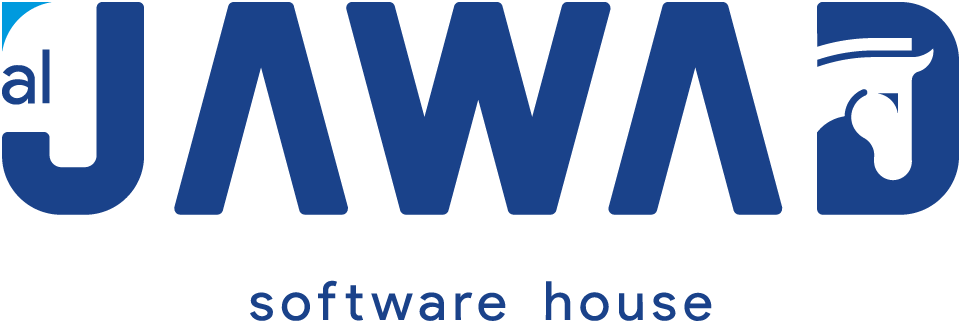Data is one of the most valuable assets any business owns. With growing reliance on analytics and reporting tools, companies are increasingly adopting Power BI security to gain insights from their data. While the benefits are undeniable, moving sensitive information to the cloud raises an important concern: security. Protecting your financial, customer, and operational data requires a strong understanding of Power BI security and how to apply best practices.
This blog explores strategies that safeguard business data in the cloud while ensuring compliance, trust, and long-term resilience.

Why Power BI Security Matters
Business intelligence platforms like Power BI make it easier to visualize and analyze large volumes of information. However, with this convenience comes risk. Sensitive data—from customer profiles to financial records—can be vulnerable to unauthorized access, mismanagement, or even cyberattacks.
Strong Power BI security ensures your organization can:
- Prevent data breaches and leaks.
- Comply with regulatory frameworks like GDPR or HIPAA.
- Maintain customer trust by protecting sensitive details.
- Enable safe collaboration across teams and departments.
Without robust measures, the very tool meant to empower your business could expose it to unnecessary risk.
Key Components of Power BI SecurityProtecting data in Power BI involves multiple layers of defense. Some of the most critical include:
- Authentication and Access Control: Ensuring only authorized users can log in and access specific dashboards.
- Data Encryption: Protecting data both in transit and at rest using advanced encryption standards.
- Role-Based Access: Granting permissions based on job roles, minimizing unnecessary exposure.
- Compliance and Governance: Aligning usage with industry standards and corporate policies.
When combined, these elements create a holistic approach to Power BI security that protects businesses from both internal and external threats.
Best Practices to Strengthen Power BI Security
Enforce Strong Authentication
One of the first lines of defense is authentication. Enabling multi-factor authentication (MFA) makes it harder for unauthorized users to gain access, even if passwords are compromised. Businesses should also implement conditional access policies—such as restricting logins from untrusted networks or devices—to add another layer of protection.
Apply Role-Based Access Control (RBAC)
Not everyone in your organization needs access to all data. With Power BI security, administrators can define roles and assign permissions accordingly. For example, executives may access company-wide dashboards, while team leads only see departmental data. This principle of least privilege ensures data is available only to those who truly need it.
Use Data Encryption
Data encryption is non-negotiable when working with the cloud. Power BI automatically encrypts data at rest and in transit, but businesses can strengthen security by managing their own keys through Microsoft’s Bring Your Own Key (BYOK) option. This provides greater control over how sensitive data is protected.
Monitor and Audit Activities
Regular monitoring is a vital part of Power BI security. Administrators should track user activity, report sharing, and access logs to detect unusual behavior. Auditing not only helps identify potential threats but also ensures compliance with regulatory frameworks.
Implement Data Loss Prevention Policies
Power BI can integrate with Microsoft Purview and other governance tools to establish data loss prevention (DLP) policies. These prevent users from accidentally sharing sensitive information outside the organization. Such measures protect customer data, trade secrets, and other critical assets.
Cloud-Specific Considerations for Power BI Security
Moving to the cloud amplifies both opportunities and risks. While cloud infrastructure offers scalability and flexibility, businesses must adjust their security strategies accordingly.
- Shared Responsibility: Cloud providers like Microsoft secure the infrastructure, but customers are responsible for managing access, governance, and compliance.
- Secure Gateways: For hybrid models where data is stored on-premise and connected to Power BI, organizations should use secure gateways with strong authentication.
- Geo-Location Settings: Ensuring data is hosted in compliant regions helps businesses adhere to local and international laws.
By tailoring practices for cloud environments, organizations ensure their Power BI security strategies remain comprehensive and effective.
Common Mistakes to Avoid
While many companies adopt strong security policies, a few common mistakes can undermine them:
- Overly broad access permissions.
- Failing to enable multi-factor authentication.
- Ignoring compliance standards until audits occur.
- Neglecting monitoring and reporting tools.
- Storing sensitive data in unprotected workspaces.
Avoiding these errors is just as important as implementing best practices. A proactive mindset is the foundation of strong Power BI security.
Benefits of Prioritizing Power BI Security
Investing in security measures is not just about avoiding risks—it also delivers long-term benefits:
- Increased Trust: Customers, partners, and stakeholders feel confident knowing their data is safe.
- Regulatory Compliance: Staying ahead of legal requirements prevents fines and reputational damage.
- Improved Efficiency: With role-based access and clear governance, teams collaborate effectively without compromising data.
- Future-Proofing: Strong security frameworks make it easier to scale and adopt new technologies securely.
In short, Power BI security doesn’t just protect—it empowers your business.
Final Thoughts
Power BI is a powerful tool for turning raw information into actionable insights. But its value depends on how securely it handles business data. By applying best practices such as multi-factor authentication, role-based access, encryption, and continuous monitoring, businesses can ensure they use the platform safely and effectively.
In today’s digital-first world, Power BI security is not optional—it’s essential. Protecting your cloud-based data ensures not only compliance and safety but also strengthens customer trust and supports long-term business growth.
adept Business Solutions
Adept Business Solutions offers comprehensive ERP solutions to businesses of all sizes, leveraging the power of Odoo to transform operations. Their services include consultation, implementation, customization, training, and ongoing support. They specialize in optimizing workflows for industries such as retail, manufacturing, and professional services, ensuring seamless integration with existing systems.

OAKLAND - odooERP.ae
OAKLAND provides a wide range of Odoo services, including system customization, deployment, and support. They focus on delivering comprehensive ERP solutions that address the unique needs of SMEs and enterprises. Their solutions cover key areas such as finance, inventory management, CRM, and human resources.

Al Jawad Software House
With over 14 years of experience, Al Jawad Software House is a trusted provider of Odoo solutions. They specialize in delivering customized ERP implementations that enhance productivity and efficiency across diverse industries. Their team provides ongoing support to ensure long-term client success.
The Future of Business Management
with Adept ERP
At Adept Business Solutions, we specialize in providing cutting-edge ERP and accounting software solutions designed to meet the unique needs of businesses in Dubai, UAE. With over 15 years of industry expertise, we are dedicated to empowering organizations with innovative tools and personalized support for sustainable success.
- Tailored Solutions for Your Business Needs
- Expert Guidance and Support
- Enhanced Operational Efficiency
BoOK YOUR DEMO !
To book your Product Demo please complete the form:


